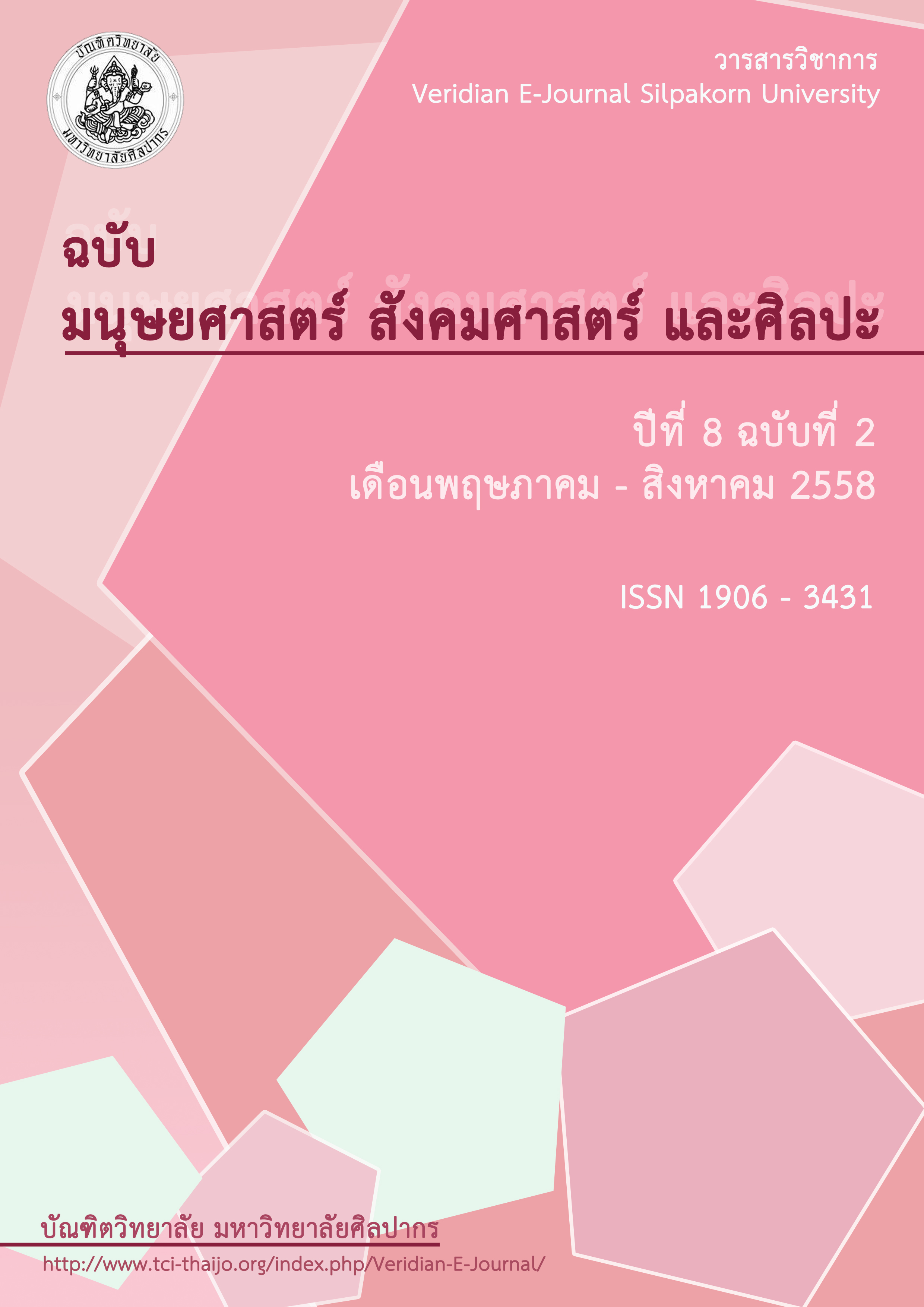คุณลักษณะของผู้ควบคุมงานด้านแรงจูงใจใฝ่สัมฤทธิ์ในงานก่อสร้าง
Main Article Content
Abstract
บทคัดย่อ
การวิจัยนี้เป็นการวิจัยเชิงสำรวจ เพื่อศึกษาคุณลักษณะของผู้ควบคุมงานด้านแรงจูงใจใฝ่สัมฤทธิ์ในงานก่อสร้าง ซึ่งแรงจูงใจใฝ่สัมฤทธิ์นั้นเป็นแรงผลักดันที่ทำให้บุคคลกระทำสิ่งต่างๆ เพื่อให้ประสบความสำเร็จตามมาตรฐานที่ตนเองกำหนดไว้ โดยทำการศึกษาจากผู้ควบคุมงานในโครงการก่อสร้างที่มีที่ตั้งโครงการอยู่ในเขตกรุงเทพฯ และปริมณฑลและทำการเก็บข้อมูลจากกลุ่มผู้ควบคุมงานที่เป็นกลุ่มตัวอย่าง ด้วยวิธีแจกแบบสอบถามในรูปแบบของเอกสารและออนไลน์ โดยคำถามในการเก็บข้อมูลได้มาจากการศึกษาและวิเคราะห์บทความและทฤษฎีต่างๆ เพื่อให้ได้ลักษณะของผู้มีแรงจูงใจใฝ่สัมฤทธิ์สูง ทั้งนี้และกลุ่มตัวอย่างผ่านการคัดกรองข้อมูล มีจำนวน 117 คนจากนั้นได้ทำการวิเคราะห์ข้อมูลด้วยสถิติเชิงพรรณนา ได้แก่ จำนวน ร้อยละ ค่าเฉลี่ย ค่าเบี่ยงเบนมาตรฐาน และสถิติเชิงวิเคราะห์ ได้แก่ Chi-square test และค่าสัมประสิทธิ์สหสัมพันธ์ของเพียร์ สัน (P)
ผลจากแบบสอบถาม พบว่า ผู้ควบคุมงานที่ตอบแบบสอบถามส่วนใหญ่มีอายุ 31-40 ปี ร้อยละ 47.86 มีประสบการณ์การทำงานในตำแหน่งผู้ควบคุมงานตั้งแต่อดีต-ปัจจุบัน 6-10 ปี ร้อยละ 30.77 มีประสบการณ์การทำงานในตำแหน่งผู้ควบคุมงานในบริษัทปัจจุบัน 3-5 ปี ร้อยละ 33.33 มีระดับการศึกษาสูงสุดที่ระดับปริญญาตรีหรือเทียบเท่า ร้อยละ 58.12 และมีใบประกอบวิชาชีพวิศวกรรมควบคุมหรือสถาปัตยกรรมควบคุม ร้อยละ 55.56 สำหรับการศึกษาเรื่องแรงจูงใจใฝ่สัมฤทธิ์ได้แบ่งการศึกษาเป็น 7 ด้าน ตามลักษณะผู้มีแรงจูงใจใฝ่สัมฤทธิ์สูง โดยผลจากแบบสอบถามพบว่า ผู้ควบคุมงานส่วนใหญ่มีแรงจูงใจใฝ่สัมฤทธิ์สูง ในด้านความกล้าเสี่ยง ความขยันขันแข็ง ความต้องการทราบผลการตัดสินใจของตนเอง การมีความคาดการณ์ล่วงหน้า และการมีทักษะในการจัดระบบงาน และมีแรงจูงใจใฝ่สัมฤทธิ์ปานกลางในด้านความรับผิดชอบต่อตนเอง และความชอบการแข่งขัน
นอกจากนี้การศึกษายังพบว่า ประสบการณ์การทำงานในตำแหน่งผู้ควบคุมงานตั้งแต่อดีต-ปัจจุบัน มีผลต่อแรงจูงใจใฝ่สัมฤทธิ์ด้านความกล้าเสี่ยงและความขยันขันแข็งในการทำงานอย่างมีนัยสำคัญทางสถิติ และด้านความสัมพันธ์ของระดับการศึกษาสูงสุดกับแรงจูงใจมีผลต่อแรงจูงใจใฝ่สัมฤทธิ์ด้านความกล้าเสี่ยงและการมีทักษะในการจัดระบบงานอย่างมีนัยสำคัญทางสถิติ อีกทั้งยังพบว่าใบประกอบวิชาชีพวิศวกรรมควบคุมหรือสถาปัตยกรรมควบคุมมีผลต่อแรงจูงใจใฝ่สัมฤทธิ์ด้านความชอบการแข่งขันอีกด้วย
Abstract
The objective of this survey research was to study the achievement motivation characteristics of supervisors in construction, which achievement motivation characteristics are the impulsions for the persons to make themselves successful by the standards they set. This research examined and collected a data from sample supervisors in construction who have been working within Bangkok metropolitan region by documentary and online questionnaires. The questions in the questionnaire were from the study and analysis of journal articles and theories that related to research in order to defined characteristics of the achievement motivation. Descriptive statistics, such as percentage, median and standard deviation, and inferential Statistics such as Chi-square test and Pearson product moment correlation coefficient (P) were used to analyze the data in this research.
Results from questionnaires showed that most of the supervisors, who responded the questionnaire, are 31-40 years old (47.86%), had been working in the construction area for 6-10 years (30.77%), had been working as the supervisors in the current organization for 3-5 years (33.33%), had the bachelor’s degree (58.12%) and had license for professional practice in engineering or architecture (55.56%). In terms of the study of achievement motivation characteristics, it was separated into 7 characteristics and implied that supervisors had high achievement motivation characteristics in risk taking, energetic, knowledge of result of decision, anticipation of future possibilities and organizational skills. The supervisors had medium achievement motivation characteristics in individual responsibility and competition. Moreover, the results showed that the years of working experience as a supervisor had a significant influence in risk taking and energetic characteristics. The results also implied that education level and motivations were related to the risk taking and organizational skills, License for professional practice in engineering or architecture were related to competition.
